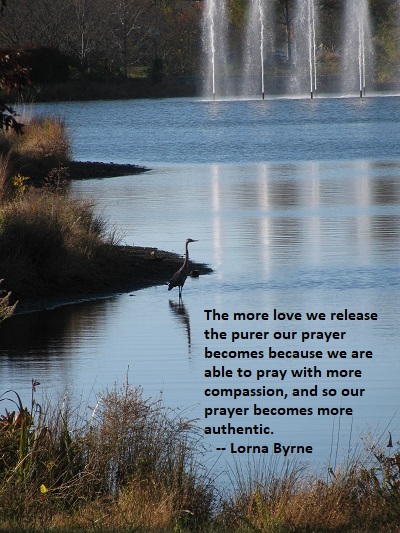What I want you to know is that God’s attitude, God’s spirit, toward you is one of unwavering fatherly-motherly love. You have nothing to fear from God. God is not mad at you. God has never been mad at you. God is never going to be mad at you. And what about the fear of God? The fear of God is the wisdom of not acting against love. We fear God in the same way that as a child I feared my father. I had the good fortune to have a wise and loving father, and I had deep respect, reverence, admiration, and, perhaps, a kind of fear for my father, but I never for one moment thought that my dad hated me or would harm me. God does not hate you, and God will never harm you. But your own sin, if you do not turn away from it, will bring you great harm. The wisdom that acknowledges this fact is what we call the fear of God. Sin is deadly, but God is love.
I know some will be quick to remind me that the writer of Hebrews tells us, “It is a fearful thing to fall into the hands of the living God.” And no doubt it is. In the hands of God, there is no place to hide. We have to be honest with ourselves about ourselves. In the hands of God, we can no longer live in the disguise of our lies. In the hands of God, we have to face ourselves. And that can be terrifying. When the prodigal son returned home and fell into the arms of his father, I’m sure the boy felt afraid. We can tell by how he immediately speaks of his unworthiness: “I am no longer worthy to be called your son.” This wayward son has fallen into the hands of his father; his fate is in his father’s hands . . . and he is afraid. But there is no better place to be! This gracious father in Jesus’s parable is given to us as a picture of our heavenly Father! When the prodigal son fell fearfully into the hands of his father, forgiveness, healing, and restoration began. Just because the prodigal son felt fear as he fell into his father’s hands doesn’t mean he had anything to fear from his father. In his father’s hands was the only safe place to be. It was in the far country that the prodigal son was in danger, not in his father’s hands. When we fall into the hands of the living God, we are sinners in the hands of a loving God.
— Brian Zahnd, Sinners in the Hands of a Loving God, p. 19-20




